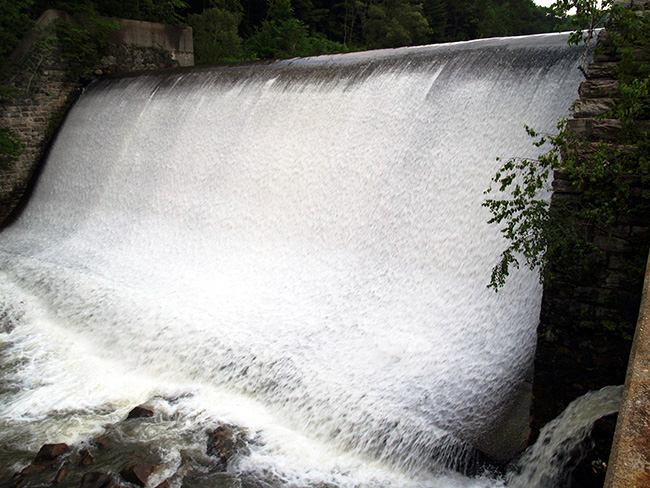3000
Today, 3000. The University of Houston presents this series about the machines that make our civilization run and the people whose ingenuity created them.
How large a number is 3000? Thus far, only 28 baseball players have made that many hits. It's the number of years since the reign of King David of Israel or the life of Zarathustra. It'd take us a couple hours just to count to 3000 aloud. And 3000 is the number of this episode of The Engines of Our Ingenuity.
I began this program back on January, 4, 1988, and was the sole voice through the first 1600 episodes. Since No. 2000 the radio station has taken over management of the program - scheduling, distribution, Internet*. Now, a half dozen or so people do episodes regularly, and many more contribute intermittently. (By the way, the speaker and writer are always one in the same - connected to the content and responsible for it.)
And the digital age has changed us since I began recording in '87. I don't just refer to that time when we corrected recording tape errors with a razor blade. Forward leaps in digital technology have changed our lives in far more fundamental ways.
I had to spell out so much more content at first. You, good listener (well, we listeners) knew less back then. Today, we worry about our schools and the future of learning, yet we really are a smarter public today. We have much more background knowledge.
The Internet has become a kind of external drive for our brains - a fact that's put all of education into chaos. Teaching can no longer be about imparting knowledge. All knowledge is there at the press of a button. The focus of education has to shift from imparting information, to processing it.
That's actually good news for those of us who do this program. We can, for example, spend less time defining the second law of thermodynamics, and more time seeing what it means. The process is more fun for all of us, speakers and listeners alike.
Another bed-rock idea behind the program has been the interconnectivity of creative ideas. While the many voices of the program bring many backgrounds of expertise, the program must never become a set of specialty modules. That'd kill our whole premise that creativity springs from cross-fertilization.
So: operations researcher Andy Boyd will talk about music. Horn player Roger Kaza might tell about early Native American Civilization. Librarian Margaret Culbertson explains a 19th century artificial stone material. Astronaut Michael Barratt dives into the log books of an early sailing ship's surgeon.
Back in the '80s, some people said, "The program is about engines. How can you talk about art, writers, psychology?" Others expressed surprise and delight when I did so. No more. The Internet has made us all aware that invention arises at the intersection of two different lines of thinking.
Things have changed since we first went to air. You listeners have changed as well. You've grown. And you have, I hope, helped us to grow as well.

So much water over the dam. (Hoosic River flood control dam, North Adams, MA. Photo by John Lienhard)
I'm John Lienhard at the University of Houston, where we're interested in the way inventive minds work.
*My special thanks to Engines Manager, Paul Pendergraft, and HPM Internet Manager, Valerie Lawhorn
For more on the history of The Engines of Our Ingenuity, see the Engines home page I would especially like to call your attention to this list of the many voices you now hear on the program.
Some Factoids:
If a person were to spend his/her work week doing nothing but listening to Engines episodes, it would take five weeks to hear the whole set.
Together, the Engines writers have invested around 15 working years of unpaid volunteer effort in bringing the program to air.
We estimate that the public has spent on the order of 40 thousand working years of time listening to Engines episodes -- the lifetime of modern humans on earth.
This episode was first aired on March 23, 2015